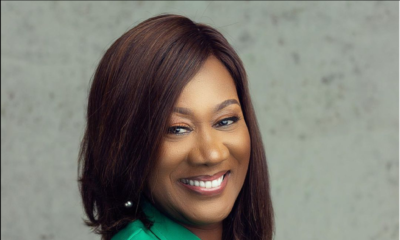Features
Oyinkansola Ohiro: Do You Have a Savings Problem?
Small changes to your financial habits and routines can make a world of difference.
 I was having lunch with a friend some days ago and she complained about not having a lot to save. First of all, guys, you should save first, and then spend the rest. The majority of us youths do the opposite.
I was having lunch with a friend some days ago and she complained about not having a lot to save. First of all, guys, you should save first, and then spend the rest. The majority of us youths do the opposite.
A good formula to financial freedom is consistency + discipline + income – savings (investment) – important expenses = Financial Freedom.
If you aren’t saving as much money as you would like, there could be some underlying issues that need to be addressed. It’s not easy to spot a savings problem, but it can make a huge difference. I was told once that to solve a problem, you need to diagnose the problem first. This way, you can understand what you need to do and change.
How do you spot saving problems?
When your income increases, your spending increases
It is only normal for people to increase their cost of living when their income increases. More money can come with more expenses. But, it doesn’t have to. If you were able to survive on your previous income, there should be no reason to increase your cost of living just because you now have more to spend.
Financial independence comes with the ability to live on less. If you are making more, you should ultimately be saving more, not spending more.
You enjoy yourself to the fullest, but can’t pay your bills or emergency expenses
I remember how I was in the university. Girl, was I enjoying myself to the fullest? I was that girl who bought take out (Chinese food) every night, bought random things that I can’t even mention, and when things got hard I could not keep up (struggling to pay rent and phone bills). I was that girl who wanted to “live life” and didn’t think about my future. This is a major sign of a savings problem. If you are indulging in all of the things you love to do, but won’t be able to cover unexpected expenses or emergency, you need to change.
You don’t know what you could be saving
If you don’t budget your money, you don’t know what you could be saving month over month. This means that you likely aren’t saving much at all, because you think you can’t afford to, or you spend more than you think. Regardless, without a budget, you don’t know what your savings potential is.
Oftentimes, a lot of us know what we bring home and what our reoccurring expenses are, but these expenses are taking a huge junk of our income. When you have a budget, you can see exactly what income you have left after taking a portion for savings out first, and then prioritising important expenses. Once you know this information, you will know exactly what you can afford to save.
You don’t schedule or automate your savings
Automatic savings can be a huge help for saving consistently. First of all, automatic transfers take the pressure off of you to remember to save money. Second, you can set your transfers up to come automatically around payday. This allows you to pay yourself first, then live off the rest.
Before you get your automatic transfers scheduled, it’s important to know what you can truly afford to save each month. This is why a detailed budget is needed. There’s nothing worse than putting too much into savings, only to have to take it out because you forgot about a few bills. Get your budget set up, then designate your savings amount.
Now that you have few pointers to help highlight if you have a savings problem, the way out is next on our agenda.
Saving money isn’t really a hard thing, guys. Small changes to your financial habits and routines can make a world of difference. If you have any of the above problems, seek help. No one should be afraid of sharing or talking about their financial problems.
A problem shared is a problem half solved.


















